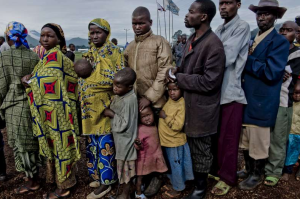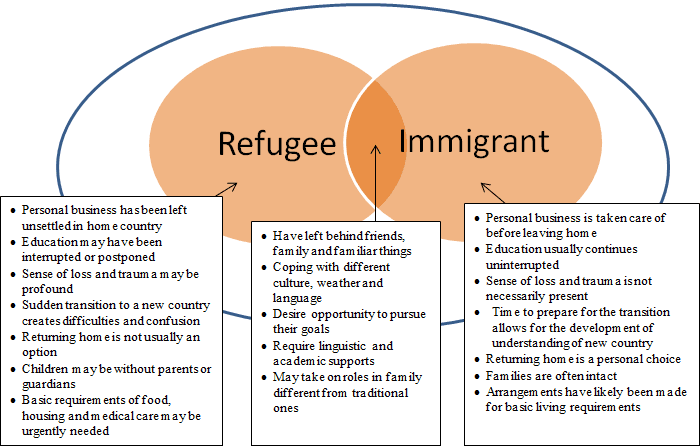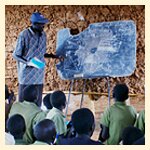Many refugee learners come from war-affected countries and they have often experienced trauma, tragedy, persecution and prolonged stays in transitional refugee camps. Some have been forced to serve as soldiers and many have witnessed acts of violence, torture and crime, sometimes against their own family members. These learners and their families cannot go back to their homelands and therefore, can experience a great sense of loss and sadness. Many refugee learners will not talk about their experiences.
 Refugee learners may also arrive in Canada without their parents who may have died, may be missing or may have been detained in the country of origin. As a result, there may be a variety of family configurations, for example: older siblings as guardians, forced adoption, or unification with unfamiliar blood relatives. Research has shown that the separation of children from their parents or adult relatives has a more traumatic effect than actual exposure to war and incarceration. Many refugee parents or guardians are living under difficult socioeconomic conditions and experiencing emotional stress. They have a great deal of concern for their children but may lack the personal, financial or linguistic resources needed to effectively support them in the acculturation process or in their academic work.
Refugee learners may also arrive in Canada without their parents who may have died, may be missing or may have been detained in the country of origin. As a result, there may be a variety of family configurations, for example: older siblings as guardians, forced adoption, or unification with unfamiliar blood relatives. Research has shown that the separation of children from their parents or adult relatives has a more traumatic effect than actual exposure to war and incarceration. Many refugee parents or guardians are living under difficult socioeconomic conditions and experiencing emotional stress. They have a great deal of concern for their children but may lack the personal, financial or linguistic resources needed to effectively support them in the acculturation process or in their academic work.
There are typically four stages of adjustment which newcomers move through over a long period of transition. To learn more about the four stages, the feelings and behaviors associated with each stage, and the ways in which school staff can assist students during the process of adjustment, see Stages of Cultural Adjustment.
For more information about war experiences, see War-Affected Children.
For more information abouth the psycho-social effects of the refugee and resettlement experience see Refugee Journey.

Refugees vs Immigrants
Adapted from Students from Refugee Backgrounds: A Guide for Teachers and Schools (BC Ministry of Education)



